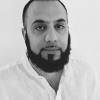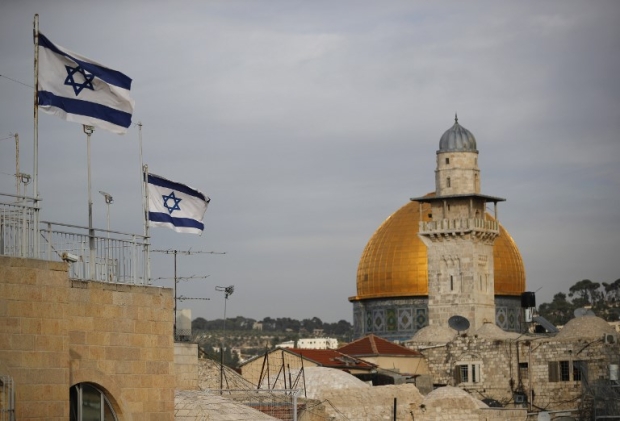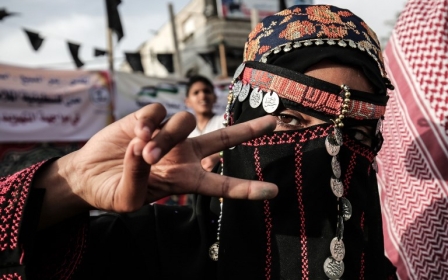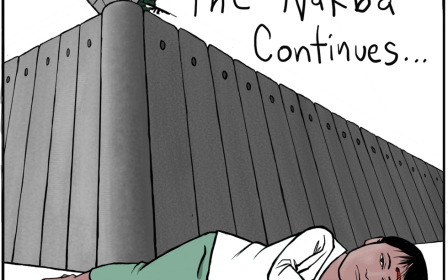White Helmets rescue: A cheap PR stunt for settler-colonialist regimes
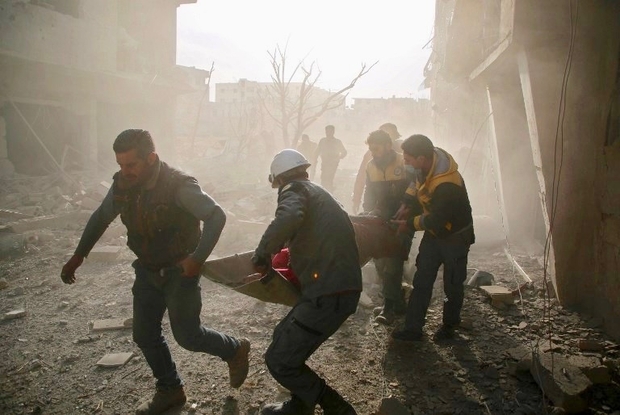
As the Syrian war continues to ravage the country, its effects rippling throughout the world, so too does Gaza’s Great March of Return, an outcry against Israel’s ongoing colonisation of Palestine.
Setting aside Israel's continued occupation of the Golan Heights, Syria has been used by Israel as a front to whitewash its reputation and deflect attention from the crimes it has been committing against Palestinians.
Whitewashing has been a crucial element of Israel’s ongoing Nakba against Palestinians. It is necessary to the process of memoricide, in that it paints the victimiser as the victim and vice versa, turning reality upside down.
Perpetuating hasbara
Known in Israel as the Hasbara Project, a public relations campaign was initiated in the 1980s after Israel’s international reputation plummeted due to its role in the Sabra and Shatila massacre.
Last month's dramatic rescue operation of hundreds of Syrian White Helmets and their families was another opportunity to perpetuate hasbara in the midst of Israel’s terrorism against Palestinians. The image of Israel facilitating the rescue of members of the Syrian civil defence team distracted from its deliberate targeting of civilians, including medical personnel, in the Gaza Strip.
Both Canada and Israel are engaging in sheer hypocrisy, spending resources externally on 'humanitarianism' at the expense of indigenous peoples internally
Israel has targeted ambulances, hospitals and the entire civilian infrastructure of Gaza. Yet, even after a Canadian doctor was hit, the Canadian government failed to adequately respond, declining to participate in an “investigation” led by Israel.
Israeli whitewashing is also facilitating its illegal blockade of the world’s largest open-air prison. Not only have innocent civilians been denied an escape from the siege and repeated bombardments of Gaza, including the use of weapons containing white phosphorous, but Israel has also attempted to exploit and blackmail severely injured Palestinians trying to get into Israel for medical reasons.
However, Israel has opened its borders to injured Syrians, including members of rebel groups fighting the Syrian regime. Some of these rebel groups have also been receiving financial and military assistance.
Attempts at whitewashing
Whitewashing is a familiar phenomenon for indigenous peoples of Canada. For Canada, taking in the rescued White Helmets provided an opportunity to prop up the country’s humanitarian image amid recent affronts to indigenous rights, including the Trans Mountain and Keystone XL pipeline projects.
The Trudeau government maintains that indigenous peoples do not have veto power over natural resource projects on their territories. Canada has also botched its public inquiry into missing and murdered indigenous women in the country, while a recent report has highlighted the steady rise of indigenous youth incarceration - a phenomenon all too familiar to Palestinians.
While Canada’s responses to the crises facing its own indigenous communities remain highly problematic, Ottawa has confirmed it is willing to take in 250 White Helmet evacuees.
Both Canada and Israel are engaging in sheer hypocrisy, spending resources externally on “humanitarianism” at the expense of indigenous peoples internally. Such settler-colonial states must devise a saviour persona to cover up for their crimes against indigenous peoples.
Legislating racism
Saviour identities are embedded in supremacy politics. Not only did apartheid start in Canada - later being perfected by Israel - but both countries have legislated white supremacy and racism. In Canada, the British North America act was followed by the Indian Act, while Israel recently codified Jewish supremacy in legislation resembling the Nazi-era Nuremberg laws.
Clearly, the White Helmets operation was not born out of concern for the Syrians or for humanitarianism in general. Rather, it was a cheap public relations stunt for both Canada and Israel in the face of criticism over their treatment of indigenous peoples.
- Ahmad Moussa is a human rights scholar and activist and a regular contributor and freelance writer for various international news agencies. He is a scholar of indigenous and Middle Eastern issues. He is also a human rights activist with a master of arts in international law and human rights. Moussa is currently involved in research for a doctoral degree in war studies.
The views expressed in this article belong to the author and do not necessarily reflect the editorial policy of Middle East Eye.
Photo: Syria’s White Helmets are teams of volunteers who act as emergency medical service providers (AFP)
New MEE newsletter: Jerusalem Dispatch
Sign up to get the latest insights and analysis on Israel-Palestine, alongside Turkey Unpacked and other MEE newsletters
Middle East Eye delivers independent and unrivalled coverage and analysis of the Middle East, North Africa and beyond. To learn more about republishing this content and the associated fees, please fill out this form. More about MEE can be found here.


